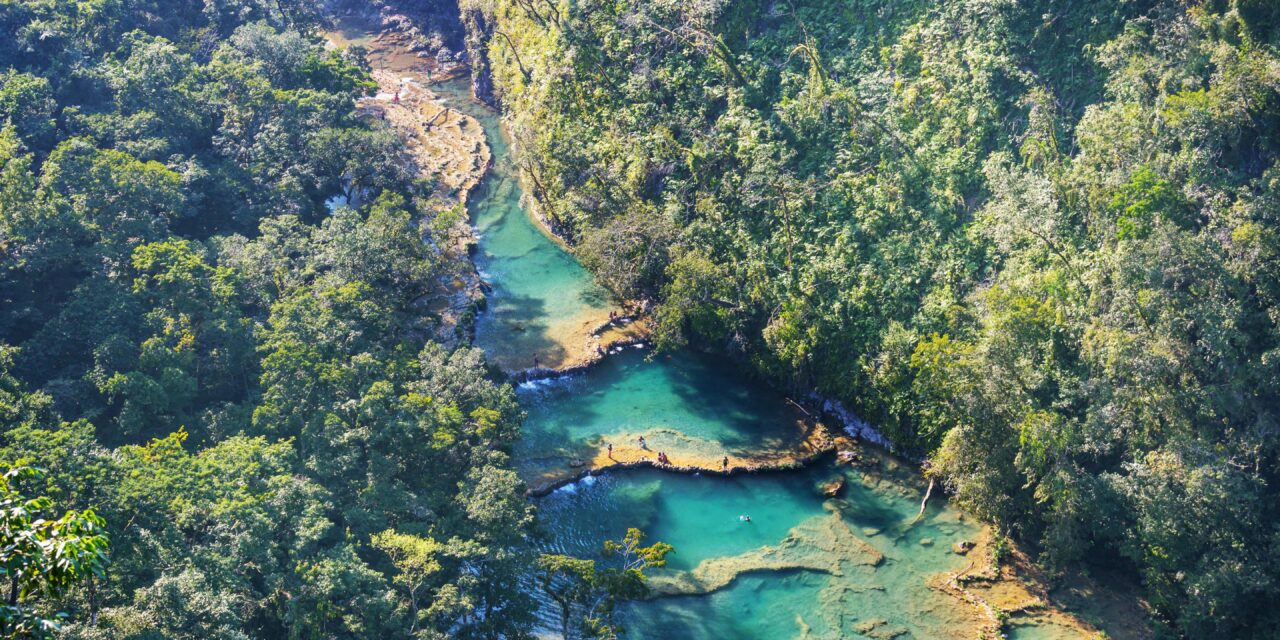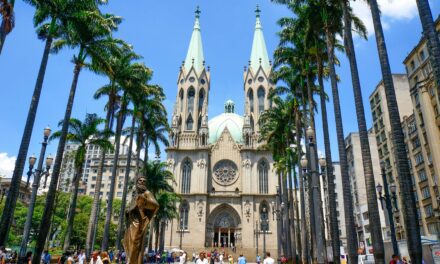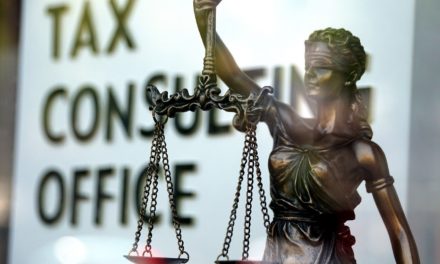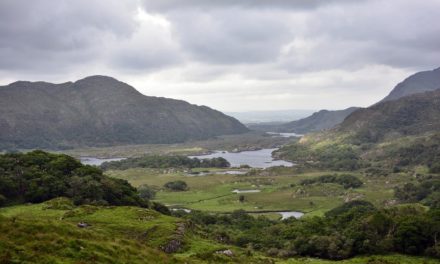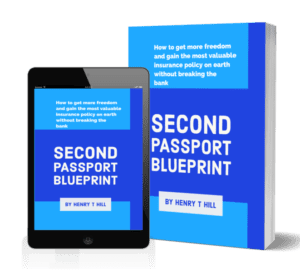Introduction
Residency in Guatemala is growing in popularity amongst expats as more people decide to exit high-tax, authoritarian Western countries.
Getting residency in a foreign country can be an exciting but daunting process. Especially for a captivating location like Guatemala, understanding the intricacies involved is vital. This Central American haven, adorned with its rich Mayan history and stunning natural beauty, has various types of residencies that cater to the diverse needs of potential residents.
The part you play in this process requires knowledge about the procedures and requirements for obtaining residency. From temporary or permanent residencies to unique categories like Rentista and Pensionado, each comes with its benefits and specific requirements.
By arming yourself with the necessary information, you pave the way for a smoother immigration process into Guatemala. So, let’s embark on this journey together to unravel how you can acquire residency in the land of eternal spring – Guatemala.
Temporary Residency in Guatemala
A gateway to the diverse cultural charm of Central America, Guatemala offers an attractive option for those seeking a new home abroad. One such pathway is through temporary residency in Guatemala. A temporary resident permit offers a stay duration of up to two years, with the possibility of renewal. It grants holders the liberty to live, study, or work in the country without needing to exit every 90 days, as required by tourist visas.
To explore the heart of the Mayan world under the status of a temporary resident, certain procedures need adherence. The first step towards your Guatemalan adventure involves lodging an application at a Guatemalan consulate in your home country or directly at the Dirección General de Migración (General Directorate of Migration) in Guatemala City. An important detail that demands attention includes ensuring that your passport has at least six months of validity from your intended date of entry.
The documentation requirements demand precision and thoroughness. Key documents that form part of this process include:
- A valid passport
- Proof of economic solvency (bank statements or income proof)
- A police clearance certificate
- Birth Certificate
- Medical Certificate
These documents must be notarized and translated into Spanish if they are in any other language. In addition to these, applicants may also need to provide a letter detailing their reasons for wanting to reside temporarily in Guatemala.
The quest for experience-rich living beckons many to Guatemala’s shores. Acquiring temporary residency can be one’s first stride towards embracing this vibrant nation’s lifestyle and heritage.
Permanent Residency in Guatemala
A significant leap from temporary residency, obtaining permanent residency in Guatemala offers a life of fewer restrictions. This status allows you to enjoy indefinite stay, work without special authorization, and access services like opening bank accounts or acquiring properties with the same ease as a Guatemalan citizen.
To apply for permanent residency, the most common route is residing temporarily in the country for at least two years prior to the application. An appealing alternative is through marriage to a Guatemalan citizen or having Guatemalan children. To navigate this process, it’s crucial to engage with an experienced immigration lawyer who can guide you through the complexities of Guatemalan law.
Key documents for this process include:
- A valid passport
- Proof of financial stability
- A clean criminal record
- Health certificates
Of course, these requirements might vary according to individual circumstances.
It’s also worth noting that permanent residents are obliged to renew their ID cards (DPI) every ten years, a simple procedure that ensures the continuity of your legal status.
From enjoying the vibrant culture to investing in a thriving economy, permanent residency in Guatemala opens doors to countless opportunities. It paves the way towards citizenship and offers an enriched experience of living in Central America’s land of eternal spring. But before packing your bags and booking your flight, let’s delve into another form of residency – a status that caters specifically for retirees or individuals with regular income from abroad: The Rentista Residency Category.
Citizenship in Guatemala
Acquiring citizenship in Guatemala opens up a realm of possibilities, paving the way for an authentic Guatemalan lifestyle. Citizenship confers an array of privileges, such as unrestricted travel within the Central American region, voting rights, and eligibility for public office.
To acquire Guatemalan citizenship, one must have a minimum uninterrupted residence period of five years. However, exceptions exist for those married to Guatemalan citizens or those of Central American origin, who are eligible after two years of continuous residence. It’s also possible to get citizenship in two years for foreigners with special skills.
Understanding the process is crucial. It starts with filing an application with the Ministry of Foreign Affairs, followed by a detailed investigation by the Guatemalan authorities. The President makes a final decision after considering recommendations from various government departments.
Key documents needed include:
- A valid passport
- Proof of uninterrupted legal residence
- Cedula (identification card)
- Financial stability proof
- Certificate stating no criminal record
- Knowledge of Spanish language and Guatemalan history
It’s noteworthy that all documents must be notarized and apostilled.
Next on this journey, let’s delve into unique residency categories starting with the Rentista Residency Category and its requisite details.
Rentista Residency Category
Guatemala offers a unique pathway to residency for foreign nationals who can demonstrate a steady income from outside the country: the rentista residency category. This type of residency is particularly attractive to retirees or remote workers, as it allows individuals to live in Guatemala without seeking local employment.
To qualify for rentista residency, applicants must show proof of regular income from a reliable source outside of Guatemala. The minimum amount varies, but typically, it should be enough to support the applicant and any dependents comfortably.
For the rentista category, Guatemala requires several specific documents:
- Proof of steady income: This could be in the form of a pension statement, bank statements showing regular deposits, or documentation showing consistent rental income. The amount required is around $1500 per month in 2023.
- Valid passport: As with any international travel or residency application, a current, valid passport is necessary.
- Health certificate: A recent (within three months) health certificate issued by a recognized health institution is required.
- Police record: A clean police record from your home country and any other country where you have lived for more than two years in the past five years.
- Birth certificate: An original copy of your birth certificate is needed.
When considering this avenue towards residency, keep in mind that while the rentista category does not lead directly to citizenship, it can be a stepping stone towards permanent residency. Also note that it may require occasional renewals and proof of continued income.
Pensionado Residency Category
By delving into the pensionado residency category, we uncover a pathway designed specifically for retirees. This option is tailor-made for individuals who have retired from their jobs and are receiving a pension from their home country.
To qualify as a pensioner, one must receive a monthly income of at least $700 USD. Notably, this amount increases by $200 USD for each dependent. The pension must be permanent and received from a stable source, such as a government or international organization.
In terms of documents required for pensionado residency, the applicant needs to present:
- A valid passport
- A police record (not older than six months)
- Proof of retirement
- Proof of the aforementioned monthly income
These documents must be notarized and authenticated, either by the Guatemalan Consulate in the applicant’s home country or via an Apostille stamp.
An interesting facet of the pensionado category is that it prohibits applicants from engaging in professional activities in Guatemala. Therefore, retirees considering this route should take into account that they will not be allowed to work or start a business while holding this type of residency.
While navigating the path towards residency in Guatemala may seem daunting, understanding requirements specific to each category can help make the process smoother. So, with pensionado residency clarified, let’s move on to explore other essential components related to gaining residency in Guatemala.
Documents Required for Residency
The path towards residency in Guatemala is paved with paperwork, and the journey’s success often hinges on having the correct documents at hand. Without a doubt, each category of residency – temporary, permanent, rentista, and pensionado – comes with its specific set of required documents.
For temporary residency, among other documents, you will need:
- A valid passport
- A clean criminal record from your country of origin
- Proof of economic solvency
The permanent residency application, in addition to the documents needed for temporary residency, requires proof of continuous residence in Guatemala for at least a year.
For those considering the rentista and pensionado categories, the documents required are more specialized. Rentistas need to provide proof of a steady income from investments or property outside Guatemala. Pensionados must provide evidence of receiving a pension or retirement income.
In recognizing that each category has unique paperwork needs, it’s crucial to ensure everything is prepared meticulously. Incorrect or incomplete documentation can lead to delays or even outright denial of your application.
Beyond generic documents like passport or criminal record checks, specific categories may require additional paperwork. For instance, rentistas and pensionados need to authenticate their financial documents through the Guatemalan Consulate in their home country.
While this might seem overwhelming, remember that careful preparation can make this process much smoother. The Guatemalan government provides comprehensive information on its official websites; do consider consulting an immigration lawyer for personalized advice.
Lifestyle in Guatemala
The lifestyle in Guatemala offers a rich blend of cultural traditions, natural beauty, and city life. As a resident, you’ll be immersed in a world where pre-Columbian heritage meets Spanish colonial influences, displayed across architecture, cuisine, and festivities.
Guatemala is renowned for its vibrant markets. Chichicastenango, for instance, buzzes with activity every Sunday and Thursday, transforming into one of the largest indigenous markets in Central America. The stalls are filled with colorful textiles, traditional pottery, and local produce – a sensory feast that encapsulates the Guatemalan spirit.
For those with an appetite for adventure, there’s no shortage of outdoor activities to explore. Guatemala is home to 37 volcanoes, many of which are accessible to hikers. Volcán de Pacaya, one of the country’s most active volcanoes, promises an exhilarating trek culminating in stunning views.
The essence of the Guatemalan lifestyle lies perhaps in its fiestas. Music, traditional dances, processions, and food characterize these community-centered celebrations. One unique feature is the creation of “alfombras” or carpets made from colored sawdust, flowers, and even fruits during Holy Week (Semana Santa).
Guatemala City boasts urban comforts along with historical attractions like the Palacio Nacional de la Cultura and the Museo Ixchel, demonstrating Guatemala’s commitment to preserving its rich cultural tapestry.
With a lifestyle offering such diversity and vibrancy, settling down in Guatemala promises to be an enriching experience.
Territorial Tax in Guatemala – Residency in Guatemala Means Foreign Income is Tax Free
Grasping the concept of territorial tax is essential for anyone considering residency in Guatemala. This Central American nation operates on a territorial tax system. In essence, this means that income earned within the borders of Guatemala is subject to taxation, while foreign-sourced income remains tax-free.
The implications of this system are profound for both residents and citizens of Guatemala. Individuals who generate their income outside of Guatemala, regardless of their immigration status, enjoy a tax-free existence on those earnings. This tax framework stands out as particularly advantageous for digital nomads, retirees with overseas pensions, or any individual with foreign investments.
However, it’s not all smooth sailing. Income derived from Guatemalan sources faces a progressive tax rate, ranging from 5% to 7%. This includes wages from employment within the country, profits from local business endeavors, and rental income from properties situated in Guatemala.
The territorial tax system adds another layer to the allure of Guatemalan residency. It offers substantial benefits for those with foreign income sources but requires careful consideration for those planning to earn locally. As always, it’s recommended to seek professional advice to navigate the nuances of Guatemalan taxation effectively.
Conclusion – Residency in Guatemala is Inexpensive and Rewarding
Navigating the path to residency or citizenship in Guatemala can appear daunting, but it is certainly not insurmountable. With careful consideration of each residency category — temporary, permanent, rentista, and pensionado — individuals can identify a pathway that matches their specific circumstances.
Residency offers an array of benefits: from the joys of immersing oneself in the rich Guatemalan lifestyle and culture to the practical advantages of territorial taxation. Nonetheless, it’s essential to gather the necessary documentation for a successful application process meticulously.
Remember:
- Temporary and permanent residencies are viable options for those seeking to live in Guatemala for extended periods.
- Rentista and pensionado categories cater specifically to individuals with stable non-work incomes.
- Citizenship provides the highest level of rights and responsibilities within the country.
Mindful preparation can make the transition smoother and more enjoyable. The complexities involved are often outweighed by the opportunities and experiences that await in this dynamic Central American nation.
The journey to residency or citizenship in Guatemala begins with understanding the requirements. It continues with careful planning and action. And it culminates in enjoying one’s new life nestled amidst the volcanoes, rainforests, and ancient Mayan sites that make Guatemala a captivating
Your Questions Answered on Residency in Guatemala
What are the benefits of temporary residency in Guatemala?
Temporary residency in Guatemala allows you to live in the country for a specific period legally. It provides an opportunity to experience the Guatemalan lifestyle, culture, and opportunities before making a long-term commitment.
What documents are required to obtain permanent residency in Guatemala?
The specific documents required for obtaining permanent residency in Guatemala can vary depending on various factors. However, generally, it includes proof of identity, proof of financial stability, and criminal record checks, among others. It’s recommended to check with local immigration authorities for a comprehensive list.
What are the advantages of obtaining citizenship in Guatemala?
Obtaining citizenship in Guatemala provides several benefits, such as the right to vote, access to certain public services, and freedom to travel without immigration restrictions within Central America, among others.
Can you explain what the rentista residency category is and its eligibility criteria?
The rentista residency category is designed for individuals who have a regular income from outside of Guatemala. The eligibility criteria include demonstrating sufficient financial means through regular income sources like rental income, investments or pensions. You must show income of around $1,500 per month
What are the specific documents required for obtaining pensionado residency in Guatemala?
The specific documents required for obtaining pensionado residency typically include proof of regular pension income that meets minimum requirements (around $700 per month). However, exact document requirements can vary so it’s recommended to check with local immigration authorities.
What is territorial tax and its significance in Guatemala?
Territorial tax refers to a system where only income earned within the borders of Guatemala is subject to tax. This system can have significant implications for residents and citizens of Guatemala as foreign-sourced income will not be taxed.

